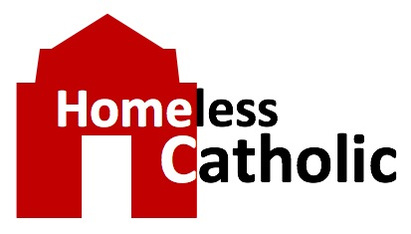With God, learning is never done
There’s no point at which you can say “My education is complete.” You might make a reasonable case for the position that one’s level of instruction at some given point is sufficient; but the whole point of getting a PhD is to be able to continue expanding one’s chosen field of study.
Even at the highest academic levels, learning is not done.
Image by Andrew Tan
Reflection - Instruction
By Steve Hall
https://bible.usccb.org/bible/readings/081322.cfm
Ezekiel 18:1-10, 13, 30-32
Matthew 19:13-15
It’s still summertime and kids are still out of school. However, as we know, that won’t last much longer. At least in our area, the summer break ends next week. Throughout most of this summer our young grandson has been a regular daytime resident. As much as he likes to play, he still finds learning a worthwhile adventure and willingly cooperates with ‘class time’ as arranged by his grandmother. I would surmise that that has been in large part due to my wife’s skills in the education area, having worked with the younger elementary school children all her life.
Today’s Scriptures have something in common with my grandson’s summertime learning experience. What they share is the ongoing character of learning. There’s no point at which you can say “My education is complete.” You might make a reasonable case for the position that one’s level of instruction at some given point is sufficient; but the whole point of getting a PhD is to be able to continue expanding one’s chosen field of study. Even at the highest academic levels learning is not done.
Today’s passage from Ezekiel reminds us that, with regard to faith and the practice thereof, the same holds true. We’re not talking theological studies here but about how we live out our religious experience.
The meaning of the proverb is symbolic yet seems fairly clear: Children will suffer as a result of their father’s sinfulness. Ezekiel denies that this is in accord with the nature of God. If the old proverb were true then God’s judgment of righteousness would, at least in part, be dependent upon the righteousness of one’s parent, and theirs upon their own parents, and so on back ad infinitum. Rather, God will judge each “each one according to his ways.”
What a relief!
Such a teaching was necessary in Ezekiel’s time only if people believed in the old, discredited proverb. Their faith had to advance. Their religious education needed to continue. The status quo was insufficient, and in this case, even wrong. While there is such a thing as natural religion which we readily attribute to primitive people, that is hardly suitable for those whose formal education touches upon most ever other aspect of life.
The people of Corinth during the early days of the church were hardly uneducated, yet their newly found Christian faith was still immature. This is what prompted Paul to tell them: “I fed you with milk, not solid food; for you were not ready for it; and even yet you are not ready.” (I Corinthians 3:2) And the Corinthians were not alone in their spiritual infancy. In the more general letter to the Hebrews the same teaching would be re-stated: “For every one who lives on milk is unskilled in the word of righteousness, for he is a child.” (Hebrews 5:13)
Many Christians today could be said to be linked to them in the tendency to consider their faith education complete or at least sufficient. That, however, is to presume that knowledge of everything God desires from and for us was learned in our elementary school catechism. That is to presume that the infinity of God can easily be understood by the human mind. That is to presume the fullness of our relationship with God is completed in our immature years. That is to presume that — to sarcastically paraphrase Paul — Your eye has seen, your ear has heard, your heart has conceived “What God has prepared for those who love him." (I Corinthians 2:9)
If that were the case, we would have to conclude that God’s provision for the Word of Scripture and the ready instruction of the Spirit are an enormous waste of time.
The connection between today’s two readings may not be obvious — that is, it may not be obvious until we reflect upon the necessity of Ezekiel’s instruction as being for the purpose of correcting an error. The continuation of spiritual learning was necessary in his day. So, too, is it in ours. We must become those children who come to Jesus for instruction and to be filled with the Word of God.

